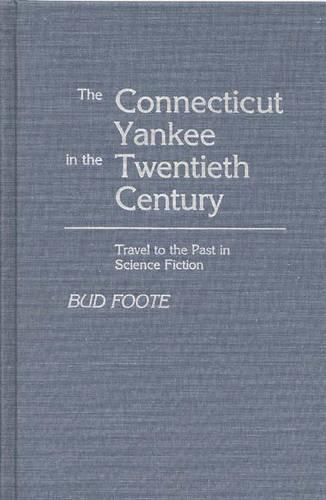
The Connecticut Yankee in the Twentieth Century: Travel to the Past in Science Fiction
(Hardback)
Publishing Details
The Connecticut Yankee in the Twentieth Century: Travel to the Past in Science Fiction
By (Author) Bud Foote
Bloomsbury Publishing PLC
Praeger Publishers Inc
20th November 1990
United States
Classifications
Tertiary Education
Non Fiction
Literary studies: c 1800 to c 1900
Literary studies: c 1900 to c 2000
813.0876209
Physical Properties
Hardback
216
Width 156mm, Height 235mm
539g
Description
The first examples of travel to the past appear early in the 19th century, but it was not until the publication of Mark Twain's "A Connecticut Yankee in King Arthur's Court" that we see a hero taking advantage of a combination of hindsight and advances in technology to build an empire in the past. Given that this scenario is such a common 20th century fantasy, its late appearance is somewhat surprising. As fewer and fewer writers find travel to the future an appealing scenario, travel to the past and to paratime - alternative universes - have come increasingly to the forefront. Twain's "Connecticut Yankee" contains, explicitly or implicitly, most of the problems and themes which later writers have wrung out of past time-travel. Concentrating on travel to the past, this study details, both in Twain's seminal work and in its science fiction successors, the various roles played by the traveller to the past - nostalgic, tourist, imperialist, Oedipal hero, and existential isolate - and attempts to relate these roles both to the rest of Twain's work and to the world-view of contemporary America. While other writers have dealt with time travel as part of a general survey of science fiction, Foote's study is among the first to relate it to the body of Mark Twain's work and to attempt to account for the appeal of time travel to the past in historical, geographical, and psychological terms. Because it straddles several disciplines, it should appeal to those interested in science fiction, American literature, and popular culture.
Author Bio
BUD FOOTE is Associate Professor of English at Georgia Institute of Technology. He contributed an essay to Contours of the Fantastic (Greenwood Press, 1990). He has reviewed books for National Observer and was science fiction columnist for the Detroit News.
